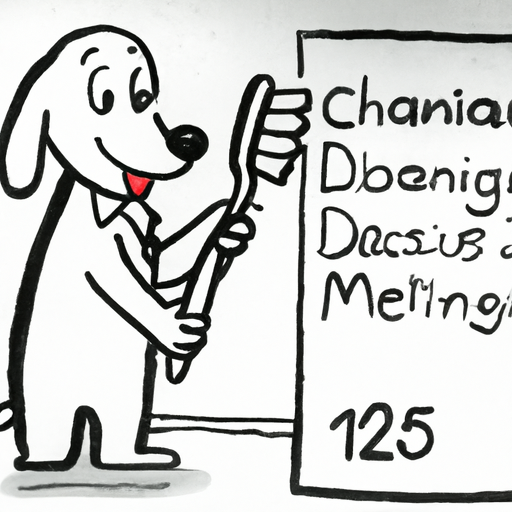As a caregiver to your furry friend, you might find yourself pondering, how often do dogs need dental cleaning? The answer isn’t as straightforward as it seems. It depends on various factors including breed, diet, age, and overall health. Just like humans, dogs also require regular dental care to maintain their oral health and wellness. In this article, we’ll dive into the importance of dog dental cleaning and how you can ensure your pet’s mouth stays healthy.
Table of Contents
- The Importance of Dental Cleaning
- Factors Determining the Frequency of Dental Cleaning
- A Basic Guide to Dog Dental Cleaning Frequency
- How to Maintain Your Dog’s Oral Health at Home
- Frequently Asked Questions
Key Takeaways
- Dental health is crucial for dogs, just as it is for humans.
- Dog dental cleaning frequency depends on several factors, including breed, age, and overall health.
- Regular at-home dental care can supplement professional cleanings and prolong oral health.
The Importance of Dental Cleaning
Dental hygiene is vital for dogs as it prevents oral diseases such as periodontal disease. According to the American Veterinary Dental College, most dogs show signs of periodontal disease by the age of three if their oral health isn’t adequately cared for. This condition can lead to tooth loss, severe pain, and even systemic infections affecting the heart, liver, and kidneys.
A professional dental cleaning involves a thorough assessment of your dog’s mouth, scaling to remove tartar and plaque, and polishing. Regular cleanings can significantly enhance your dog’s oral health and overall well-being.
Factors Determining the Frequency of Dental Cleaning
The frequency of dental cleanings for your dog depends on several factors:
- Breed: Smaller breeds are more prone to dental diseases and may require more frequent cleanings.
- Age: Older dogs generally need more frequent dental care than younger ones.
- Diet: Dogs on a dry food diet tend to have less plaque and tartar buildup.
A Basic Guide to Dog Dental Cleaning Frequency
As a general rule, vets recommend a professional dental cleaning for your dog once a year. However, this can vary based on the factors mentioned above. For instance, breeds like Dachshunds are more prone to dental diseases and may require bi-annual cleanings.
Your vet will be able to provide personalized advice based on your dog’s needs. For more information on specific breeds and their dental requirements, this article from OneTopDog could prove useful.
How to Maintain Your Dog’s Oral Health at Home
Between professional cleanings, it’s crucial to maintain your dog’s oral health at home. Here are some tips:
- Brush their teeth daily: Just like us, dogs benefit from daily tooth brushing. Use a dog-friendly toothpaste and a soft toothbrush.
- Dental chews and toys: These can help reduce plaque and tartar buildup. Here’s a list of recommended dental chews from OneTopDog.
- Regular check-ups: Regular vet check-ups can help detect any early signs of dental disease.
Keep in mind that while these steps can supplement professional cleanings, they shouldn’t replace them.
Frequently Asked Questions
1. Can I use human toothpaste to brush my dog’s teeth?
No, human toothpaste contains ingredients like fluoride that can be harmful to dogs. Always use a dog-friendly toothpaste.
2. How often should I brush my dog’s teeth?
Ideally, you should brush your dog’s teeth daily.
3. What are the signs of dental disease in dogs?
Bad breath, difficulty eating, and discolored teeth are some signs of dental disease.
4. How can I tell if my dog needs a dental cleaning?
If you notice bad breath, yellow-brown crust on the teeth, bleeding gums, or changes in eating or chewing habits, your dog may need a dental cleaning. Always consult with your vet if you notice any changes.
In conclusion, dental cleanings are an essential part of your dog’s health regimen. Regular professional cleanings supplemented by at-home care can ensure your furry friend maintains a healthy mouth. For more detailed information on dog health and wellness, check out this guide from OneTopDog.



